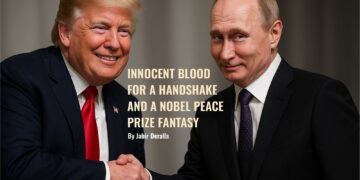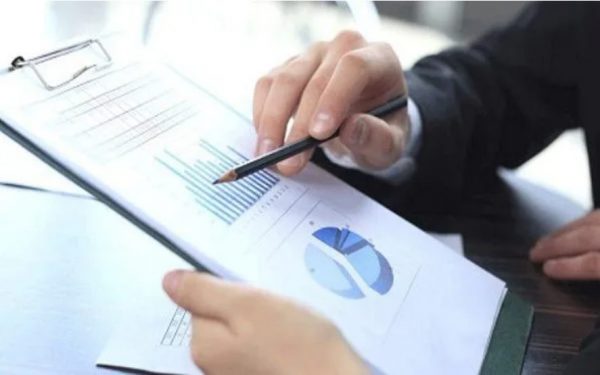The Skopje Economic and Financial Forum (SEFF) continues on Tuesday with debates as part of the forum’s pillars on “Energy, Green Transition, and Infrastructure”and “Beyond the Crisis: Drivers for Sustaining Growth,” informs MIA.
The agenda on day two of the international conference includes addresses by President Stevo Pendarovski and Parliament Speaker Talat Xhaferi, followed by debates on “Energy and Green Transition”, “Digitalization, Infrastructure, Connectivity, and Trade”, “Financial Innovations and Investments Under Uncertainty”, “New Challenges to Good Governance”, and “Human Capital in the Twenty-First Century.” The keynote speakers on Tuesday are President of the European Bank for Reconstruction and Development (EBRD) Odile Renaud-Basso and Vice-President of the European Investment Bank (EIB) Lilyana Pavlova. Panelists include Deputy PM for European Affairs Bojan Marichikj, Environment Minister Naser Nuredini, Minister of Transport and Communications Blagoj Bochvarski, Education Minister Jeton Shaqiri, Health Minister Bekim Sali, Director of the Energy Community Secretariat Artur Lorkowski, President of the Energy Regulatory Commission (ERC) Marko Bislimovski, and several Ambassadors.
The forum will be wrapped up with a panel at which Finance Minister Fatmir Besimi and several former finance ministers will sum up reflections and perspectives from the two-day conference event.
At the start of the forum on Monday, speakers at the panel one on navigating fiscal and monetary policies in order to sustain economic growth said targeted measures are necessary in the short-term to support vulnerable categories of citizens and companies directly affected by the crisis and maintain stability. In the medium and long-term, however, it is necessary to encourage competitiveness and growth through focus on structural reforms: green transition, energy efficiency, digitalization, investment in human capital, and connectivity with countries in the region. The discussion highlighted the importance of coordinating fiscal and monetary policy in order to maintain stability.
Delivering opening address at the SEFF, Prime Minister Dimitar Kovachevski said that forum will provide serious recommendations regarding the macroeconomic challenges in the coming period and the creation of fiscal and monetary policy, as well as guidelines for focusing policies on building a sustainable, resilient and competitive economy through structural reforms, as well as addressing the energy crisis and the direction towards green transition, digitalization, strengthening of human capital, sustainable and innovative financial system.
“It is of utmost importance for the Government and the Ministry of Finance to hear your opinions, analyzes, suggestions and recommendations to further apply them in creating future policies. The Government is most responsibly addressing the enormous economic and energy challenges, as well as the consequences of military aggression on Ukraine. We are making difficult, principled and above all state decisions to protect citizens’ salaries and standard of life as well as the liquidity of companies,” Kovachevski said.
Finance Minister Fatmir Besimi in his address at the beginning of the forum noted that he expected discussions and exchange of experiences during the two-day forum.
“I expect that SEFF will foster new partnerships, new projects and will contribute to building and advancing economic strategies in the countries,” Besimi said. He expressed hope that the forum will provide a solution on how to maintain growth in times of uncertainty and crisis caused by the two years of pandemic and then the war in Ukraine. We know the crisis brings many short-term challenges, but, he stressed, the focus should be maintained in the long run and to have a vision for the future.
“Now the conditions are different from international market point of view, the prices of products have spilled over into the national economies and aside from higher prices, other issues as trade and consumption, are of concern. Some central banks have already announced stricter rules, which means that the prices of financial capital will increase,” Besimi added.
Paul Krugman, distinguished professor of economics and recipient of the 2008 Nobel Prize in Economics, also delivered keynote address and referred to the situation following the crisis caused by the pandemic, but now also by the war in Ukraine, he said that the consequences are being felt, but that for now it is impossible to say whether the countries will be technically in recession, although, he stressed, everyone will feel economic pain.
“Inflation has hit high rates. We are talking about truly overheated economies. Some time ago, inflation was limited to certain goods, but now we are seeing it expand. It is good that the economies are running hot, but now I think it is important that they cool down. It is very important to have a period in which economies grow faster than their production capacity.
Will there be a recession in a technical sense? The answer is unclear. Of course, there is the possibility of a period of slow but not so negative growth and development,” Krugman said.
According to him, the economies will gradually return to their path, although this is difficult to manage. “Whether or not there will be a technical recession, we will all feel economic hardship and pain. However, there is good news. There is no sign in the data, at least the ones I have looked at, that inflation has become part of us and is rooted in the global economy,” Krugman said.
Skopje Economic and Finance Forum (SEFF) is an initiative by the Ministry of Finance aiming to facilitate public policy debates on relevant topics for the Republic of North Macedonia and Southeastern Europe, through annual conferences, occasional seminars, and a policy portal for analyses and commentaries.
Its intention is to encourage the synergy of ideas and initiatives by policymakers, political representatives, international development partners, civil society, academics, the business sector, and other experts and stakeholders to improve the policy dialogue on economic and financial topics with national and regional outreach.
















